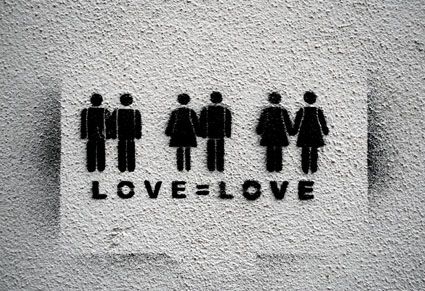Whether you are gay or straight, by next Sunday you will be a criminal in Kazakhstan if you talk about homosexuality. Russia adopted a law banning any promotion of homosexuality two years ago. Now Kazakhstan is following its neighbour's lead. While other countries legalise gay marriage, discussing homosexuality will be forbidden in Kazakhstan.
Kazakhstan, the country which borders Russia to its north and west, is mainly under Russian influence. Its draft bill was passed through the senate on the 19 February this year and now only requires presidential signing off. The Kazakh president, Nursultan Nasarbajews, who has held onto office since the country's first election in 1990, is strongly opposed to the gay movement.
The law does not explicitly state that being gay or being in a same sex relationship is unlawful. It declares that any kind of promotion of homosexuality is prohibited. This includes kissing in public, holding hands or even just saying "I am gay" in front of other people. The definition of "gay" is broad and could be interpreted in any number of ways.
The living situation for homosexuals in Kazakhstan has never been easy. Homosexuality has only been legal for 18 years. Before this time, being in a same sex relationship was prohibited by law. Though it is legal at present, the population is still very traditional and conservative. Being homosexual is not accepted or tolerated.
"Being gay, we don't really live open lives. We have to hide our relationships. You can't tell people that you're gay. People get fired from their jobs and lose their friends because of it," says Arman Satibaldy, a young Kazakh who lives in Sydney.
Arman is not his real name. Coming out publicly like this could mean facing abandonment by his family or, as he explained, not being accepted in Kazakh society. He is in a same sex relationship at the moment. His boyfriend lives in Kazakhstan. Back home, he says, he had to introduce his boyfriend as his cousin so people would not get suspicious of their close relationship.
Jed Horner, a project officer with the Australian Human Rights Institute at the University of NSW, sees problems arising from this law. "It really can drive people underground. Its damaging for people in schools, growing up, but also more importantly, it is really damaging in terms of response to HIV/Aids, because it makes health care providers, nurses and people in places of trust have second thoughts about how they work with gay men, in particular," he says.
When Russia adopted a similar law, many protests took place, but Arman does not believe that the gay community would dare to question the Kazakh government like that. "Gays live in fear in Kazakhstan and they are scared to go out in the streets. I don't think that there will be any protest."
According to Jed Horner, the law is a violation of a number of human rights. He says it hurts freedom of association and political expression, but also the right to health. By health he means not only mental health and wellbeing, but also its effect on HIV treatment.
Arman came to Sydney to have a different life. "I want to be free. I don't want to hide anymore. I want to live a normal life in a society where I can be accepted as a person, not because of my sexuality, just, you know, because of who I am."


